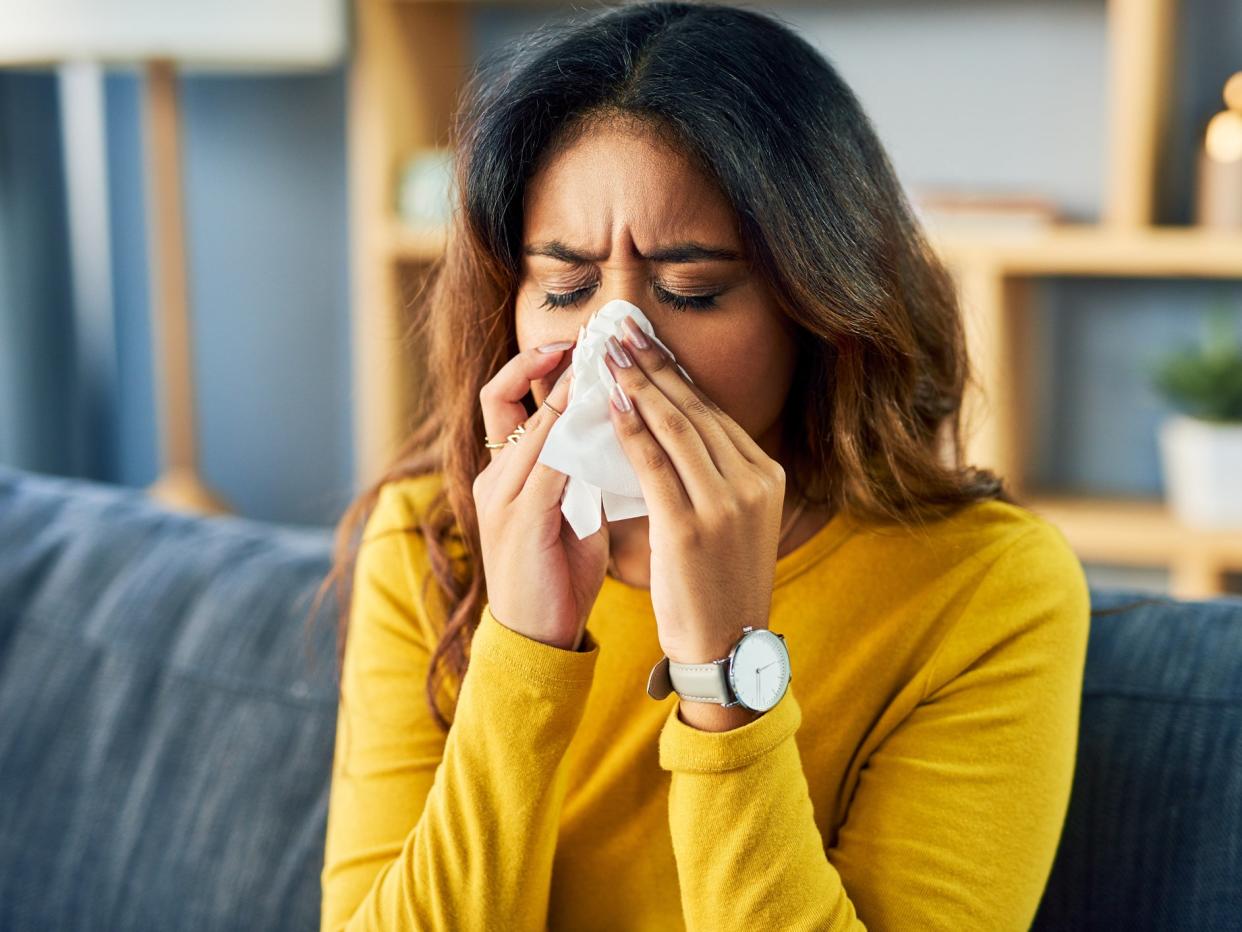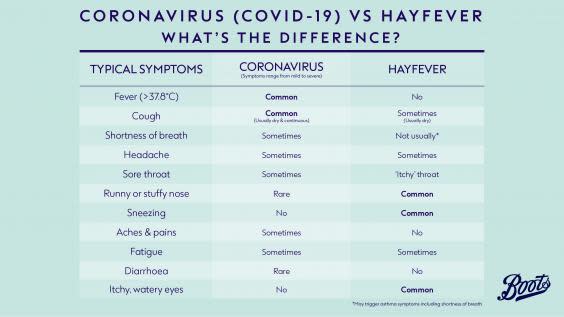Hay fever or coronavirus: How to tell the difference between allergies and Covid-19 symptoms

Over the course of lockdown, the UK has experienced bouts of sunny skies interspersed with periods of rainfall.
After days of record-breaking heatwave temperatures, the Met Office said on Monday Britons should expect "wet, windy, and disappointingly cool" weather this week.
Although wet weather might be a prayer answered for those who suffer from hay fever, the high levels of pollen aren't over yet.
And as lockdown continues to lift, everyone must stay alert to any potential symptoms of illness - so how can hay fever sufferers ensure they distinguish between their allergy and potential Covid-19?
“With the appearance of the sun, we’ve also had a huge surge in springtime pollen, causing many of us to question whether our symptoms are hay fever or coronavirus,” states the London Doctors Clinic.
“If you’re not sure what your symptoms are showing it can be a cause of concern during these unsettling times.”
Here’s how to tell the difference.
What are the main symptoms of hay fever?
The main symptoms of hay fever, the NHS outlines, are:
Sneezing and coughing
A runny or blocked nose
Itchy, red or watery eyes
Itchy throat, mouth, nose and ears
Loss of smell
Pain around your temples and forehead
Headache
Earache
Feeling tired
“Hay fever doesn’t cause a high temperature and most people don’t feel unwell,” says Marc Donovan, chief pharmacist at Boots.
The NHS adds that hay fever symptoms may last for weeks or months.
“In some people, hay fever can trigger allergic asthma, causing a tight chest and difficulty breathing,” Allergy UK states.
If an individual has hay fever and asthma, they may also experience a tight feeling in their chest and shortness of breath, in addition to wheezing and coughing.
How are they different to coronavirus symptoms?
The main symptoms of Covid-19 are a high temperature, a new, continuous cough and loss or changed sense of taste and smell, the NHS outlines.
If you have a high temperature, “this means you feel hot to touch on your chest or back (you do not need to measure your temperature)”, the health service explains.
If you have a new continuous cough, “this means coughing a lot for more than an hour, or three or more coughing episodes in 24 hours”.

“If you usually have a cough, it may be worse than usual,” the NHS adds.
The London Doctors Clinic outlines that other symptoms of the coronavirus may include:
Tiredness
Aches and pains
A sore throat
Shortness of breath
Some people have reported diarrhoea, nausea and a runny nose but this is rare
What can you do to ease hay fever symptoms?
You can ease your hay fever symptoms by taking measures such as putting Vaseline around your nostrils to trap pollen, wearing wraparound sunglasses when you’re outside to stop pollen from getting into your eyes and showering and changing your clothes when you come inside to wash the pollen off, the NHS states.
It is also advisable to stay inside and keeping your windows and doors shut as much as possible.
A pharmacist may also be able to advise you on what products may help you, such as antihistamine tablets or nasal sprays.
What should you do if you display signs of Covid-19?
If you experience symptoms that you think may indicate you have the coronavirus, you should use the NHS’s online 111 service to find out what you should do next.
It is important not to leave your home if you have a high temperature or a new, continuous cough.
“To protect others, do not go to places like a GP surgery, pharmacy or hospital. Stay at home,” the NHS says.
The organisation adds that you should only call 111 if you cannot get help through the online service.
Read more
Seven charts that show the true scale of the UK coronavirus outbreak
‘They can blame it for everything’: What coronavirus means for Brexit
The Americans who think that coronavirus is a hoax
Do you need a face mask and where can you buy one?
UK lockdown: Can I see my family and friends under new rules?


